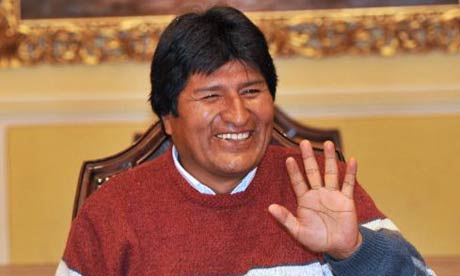Quebec left's challenge to socialists in the rest of Canada

Bloc Québécois supporters
By Richard Fidler
October 19, 2008 -- Once again, the Bloc Québécois has taken a majority of Quebec’s seats in Canada's House of Commons — 50 out of 75, one less than in 2006, although down by three percentage points.
In doing so, it dashed Prime Minister Stephen Harper’s hopes of a Conservative breakthrough in Quebec that would deliver him a majority government in Ottawa. Working people throughout Canada heaved a sigh of relief.
The Bloc’s support is more than a rejection of the Tories’ right-wing policies. As Bloc leader Gilles Duceppe declared on election night, October 14, it is a clear demonstration “that Quebec is a distinct nation linguistically, culturally, socially and economically”. This was the sixth consecutive federal election since 1993 in which the pro-sovereignty Bloc has won a majority of Quebec’s seats under the first-past-the-post system.
The Flame, October 2008 - Green Left Weekly's Arabic supplement
According to the 2006 census, the most commonly spoken language in Sydney households, after English, is Arabic. In Australia as a whole, Arabic is the fifth most commonly spoken language. The Arabic-speaking community includes Lebanese, Egyptians, Syrians, Iraqis, Palestinians, Jordanians and Sudanese. Many other ethnic groups also speak Arabic in addition to their language because they have lived in Arabic-speaking countries. These include Armenians, Kurds, Assyrians, Mandaeens and many more.
With the help of Socialist Alliance members in the growing Sudanese community in Australia, Green Left Weekly -- Australia's leading socialist newspaper -- is publishing a regular Arabic language supplement. The Flame will cover news from the Arabic-speaking world as well as news and issues from within Australia. The editor-in-chief will be Soubhi Iskander, a comrade who has endured years of imprisonment and torture at the hands of the repressive government in Sudan.
France: Olivier Besancenot -- `For a left that stops making excuses'

Hand in hand with the struggles of French workers and students has been the massive growth in popularity of postal worker and Revolutionary Communist League (LCR) spokesperson Olivier Besancenot (pictured).
Recent opinion polls listed “The Red Postie”, as even the capitalist media call him, as the second most credible opposition politician to the right-wing government of President Nicolas Sarkozy. Besancenot was voted second after the Socialist Party (PS) mayor of Paris and ahead of the parliamentary leaders of the official PS “opposition”.
Below is an excerpt of Besancenot’s speech to an August open air rally of 3500 members and supporters of the New Anti-capitalist Party (NAP), initiated by the LCR, on the challenges for the project.
* * *
It’s in these times of economic crisis that we will have to show just how useful we really are.
We must, in the year ahead, continue to show that we are the most effective opponents of the Sarkozy government and the policies of the French Confederation of Business Enterprises.
Hugo Blanco: `No contradiction between my indigenous struggle and dialectical materialism'

Interview with veteran Peruvian Marxist Hugo Blanco, conducted by Yásser Gómez for Mariátegui magazine, September 9, 2008. Translated by
By Eric Toussaint, translated by Federico Fuentes for Links International Journal of Socialist Renewal
[Click HERE for the Spanish version]
Fictitious capital and real compacts
By Anitra Nelson
The global economic crisis: An historic opportunity for transformation
An initial response from individuals, social movements and non-governmental organisations in support of a transitional program for radical economic transformation.
Preamble
October 11, 2008 -- Academics and researchers from Argentina, Australia, Belgium, Canada, Chile, China, Cuba, Ecuador, France, Mexico, Peru, Phillipines, South Korea, Spain, United Kingdom, United States, Uruguay and Venezuela participated in the International Political Economy Conference: Responses from the South to the Global Economic Crisis, held in Caracas October 8-11, 2008. The conference stimulated a wide-ranging debate on the current economic and financial health of the global economy, the new perspectives and the challenges to the governments and peoples of the South posed by the international financial crisis.
The meeting concluded that the situation has worsened in the last few weeks. It has progressed rapidly from being a series of crises in the financial markets of countries in the centre and has turned into an extremely serious international crisis. This means that countries in the South are in a very difficult situation.
The crisis threatens the real economy and, if energetic and effective actions are not taken immediately, all peoples in the world could be drastically punished; especially the least-protected and most-neglected sectors.
Evo Morales: Ten commandments to save the planet

By Evo Morales Ayma, president of the Republic of Bolivia
Message to the Continental Gathering of Solidarity with Bolivia in Guatemala CityOctober 9, 2008 -- Sisters and brothers, on behalf of the Bolivian people, I greet the social movements of this continent present in this act of continental solidarity with Bolivia.
We have just suffered the violence of the oligarchy, whose most brutal expression was the massacre in Panda, a deed that teaches us that an attempt at power based on money and weapons in order to oppress the people is not sustainable. It is easily knocked down, if it is not based on a program and the consciousness of the people.
We see that the re-founding of Bolivia affects the underhanded interests of a few families of large landholders, who reject as an aggression the measures enacted to favour the people such as a more balanced distribution of the resources of natural gas for our grandfathers and grandmothers, as well as the distribution of lands, the campaigns for health and literacy, and others.
Free download: Marxist Economics -- A handbook of basic definitions
Download Marxist Economics – A handbook of basic definitions (Resistance Books, 1998).


